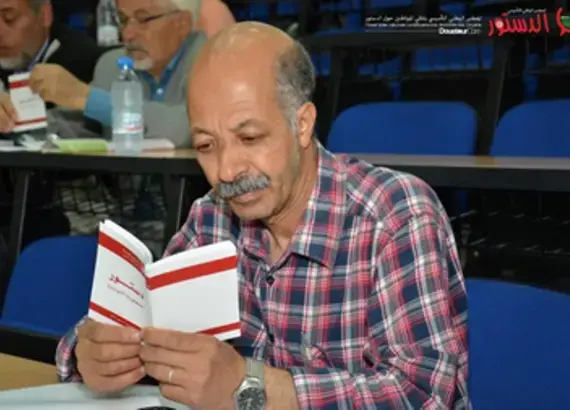
Success Story
Tunisians Optimistic about Political Progress But Seek More Engagement
With Tunisia’s new constitution ratified and election preparations underway, citizens are optimistic about political progress and the gradually improving security situation, but they are concerned with high unemployment, rising prices and poor service delivery, according to a new round of NDI focus group research.
On Jan. 26, Tunisia’s National Constituent Assembly adopted a new constitution, the culmination of more than two years of debate and consensus-building amidst several serious obstacles. With an electoral law now in place, an independent election commission is beginning preparations for presidential and parliamentary elections, which must be held by the end of 2014, according to the constitution.
Tunisian citizens are keenly interested in better communication from political leaders to help them understand the new constitution and the steps being taken toward the next elections. Despite expressing some concern about the transparency of the elections, most participants are committed to voting and look to civil society to safeguard the process.
The focus groups, conducted April 10-17 with 142 participants from four cities across the country, build on nine previous rounds of public opinion research conducted by NDI since March 2011. Respondents discussed their views of political parties and institutions, their perspectives on progress to date, and their priorities going forward, including expectations regarding the next elections. Key findings include:
- In a reversal from previous NDI research, the majority of participants believes the country is headed in the right direction, citing political milestones including adoption of the constitution and the handover to a caretaker government. Enthusiasm about political progress is nevertheless tempered by ongoing anxiety over the economic situation.
- Despite their positive impressions, citizens report low awareness of the contents of the constitution and the next steps in the electoral process, and they are eager for better outreach from political leaders on those subjects.
- Political parties are often viewed as talking “at” citizens. Tunisians want leaders to engage in genuine dialogue with them on their concerns and to present realistic solutions.
- Tunisians admit to confusion about the election commission, the ISIE, and some have doubts about its ability to run transparent elections. They thus view election observation, particularly by domestic civil society organizations, as crucial in safeguarding elections, especially as many anticipate infractions by political parties.
- Views are mixed on controversial provisions of the electoral law debated by the NCA, particularly on exclusion of former regime and ruling party members from running as candidates and the institution of an electoral threshold. The latter provision would require parties to secure 3 percent of votes nationwide to obtain seats in parliament.
- Despite some disillusionment, most citizens are committed to exercising their right to vote. They are especially interested in municipal elections, which are seen as vital to resolving local problems.
NDI is sharing the findings with leaders of ruling and opposition political parties, civil society organizations and the government to inform the policy-making process and encourage increased responsiveness to citizens’ interests and needs.
The research was made possible by funding from the State Department’s Middle East Partnership Initiative.
Read more:
Published May 22, 2014



